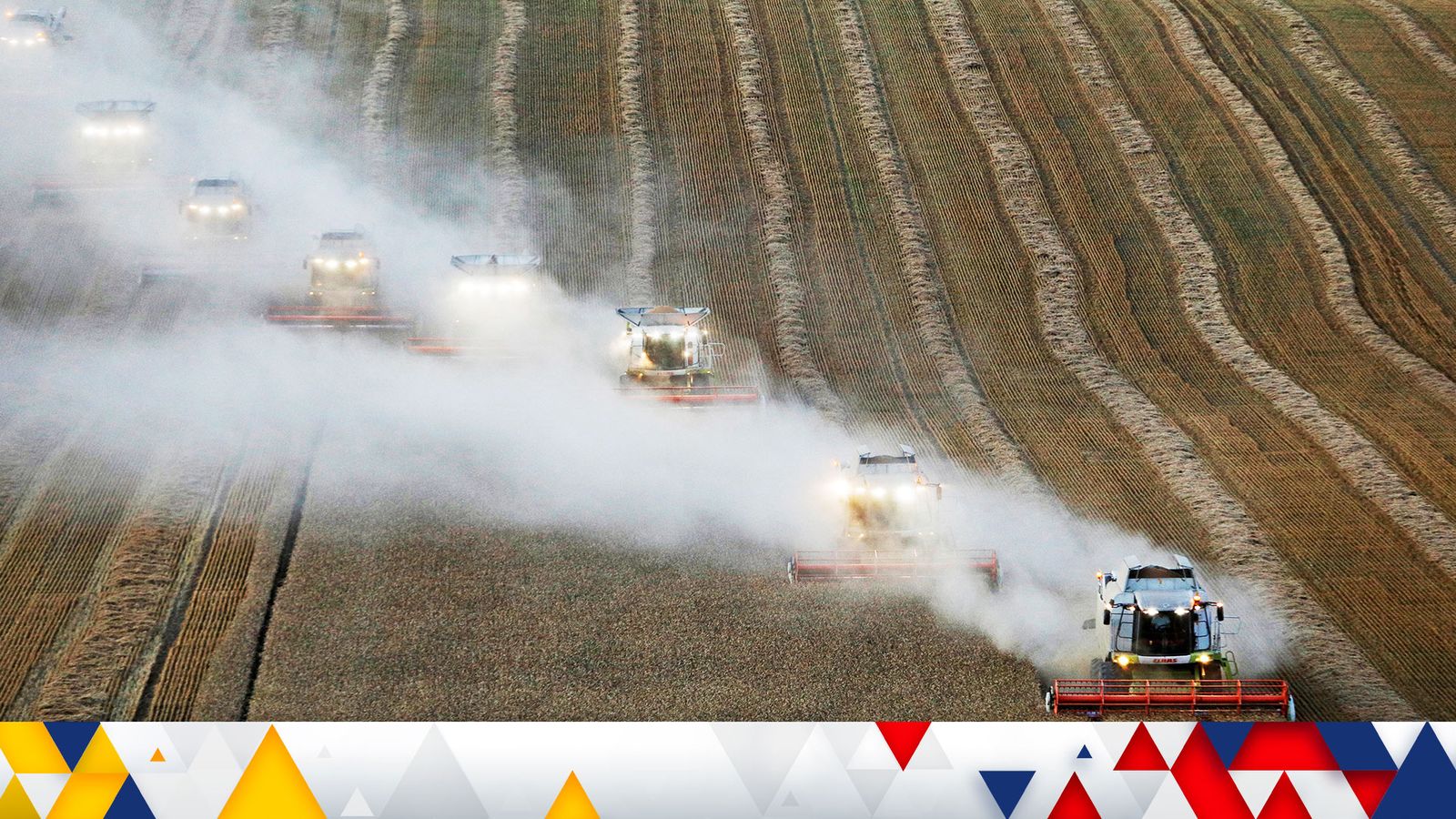Some countries could face humanitarian disasters if Russia and Ukraine stop wheat exports, according to an OECD report on the economic impact of the war.
The assessment said a complete cessation would risk a “sharp increase in poverty and hunger”.
Russia and Ukraine account for 30% of all global wheat exports and in many countries in the Middle East, those two nations represent around three-quarters of total wheat imports, the OECD said.
Its assessment said that the two countries represent a “relatively small” 2% of global GDP
But it said their importance in exports of food items, minerals and energy meant that the conflict had already resulted in “sizeable economic and financial shocks” with prices of oil, gas and wheat soaring.
The OECD said that the sharp movements in financial markets and commodity prices seen since the start of the war could, if sustained, knock one percentage point off global economic growth and add 2.5 percentage points to inflation.
“Despite the small economic size of Russia, the war and related sanctions are already causing disruptions of a global nature through financial and business linkages,” it added.
P&O Ferries suspends all sailings ahead of ‘major announcement’
Ocado puts up prices as costs soar and warns Ukraine war adding to inflation worries
Rail operator fined £23.5m for scandal over Southeastern franchise overpayments
The report added that a “complete cessation” of Ukraine and Russia’s wheat exports “would result in serious shortages in many emerging-market and developing economies”.
“There would be an acute risk not only of economic crises in some countries but also humanitarian disasters, with a sharp increase in poverty and hunger.”
The countries’ gas supply is also an important impact into fertiliser production and disruption to this also risked putting coming years’ agricultural output under stress, the report said.
Russia and Ukraine account for 20% of corn, mineral fertiliser and natural gas exports and 11% of oil.
Supply chains around the world are also dependent on exports of metals such as palladium from Russia used to make catalytic coverters for cars as well as nickel used in steel production and battery making.
Russia and Ukraine are also sources of argon and neon, used for making semiconductor chips, as well as being large producers of titanium sponge, used in aircraft.
Both countries also have globally important reserves of uranium, the report added.
“The prices of many of these commodities have increased sharply since the onset of the war, even in the absence of any significant disruption of production or export volumes,” the OECD said.





